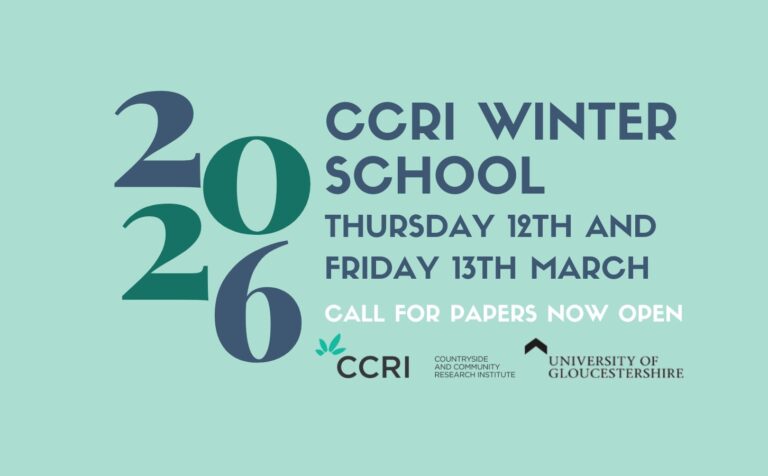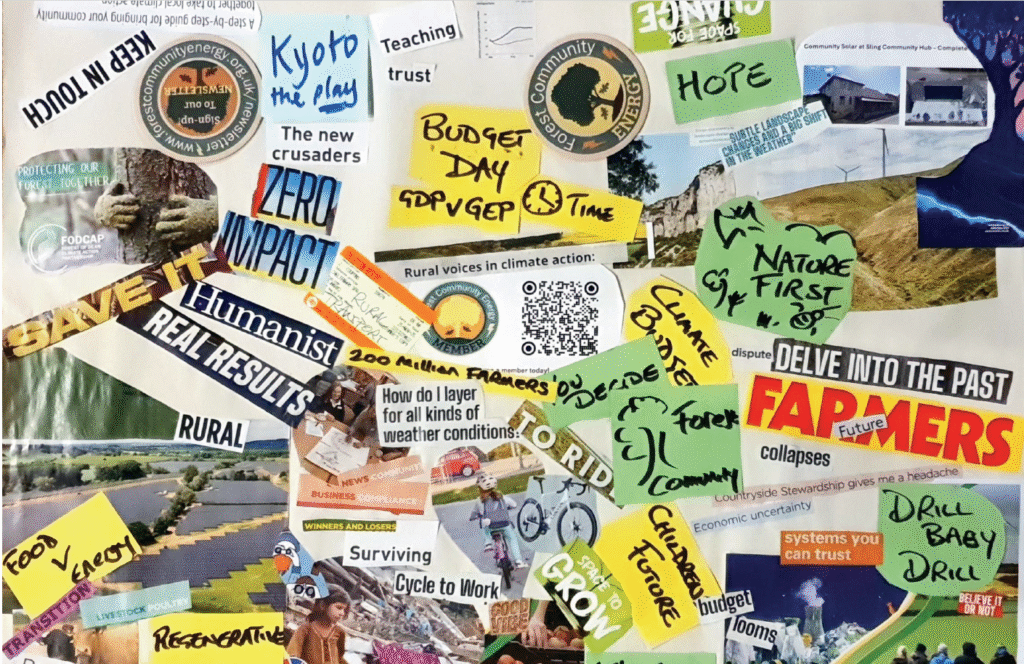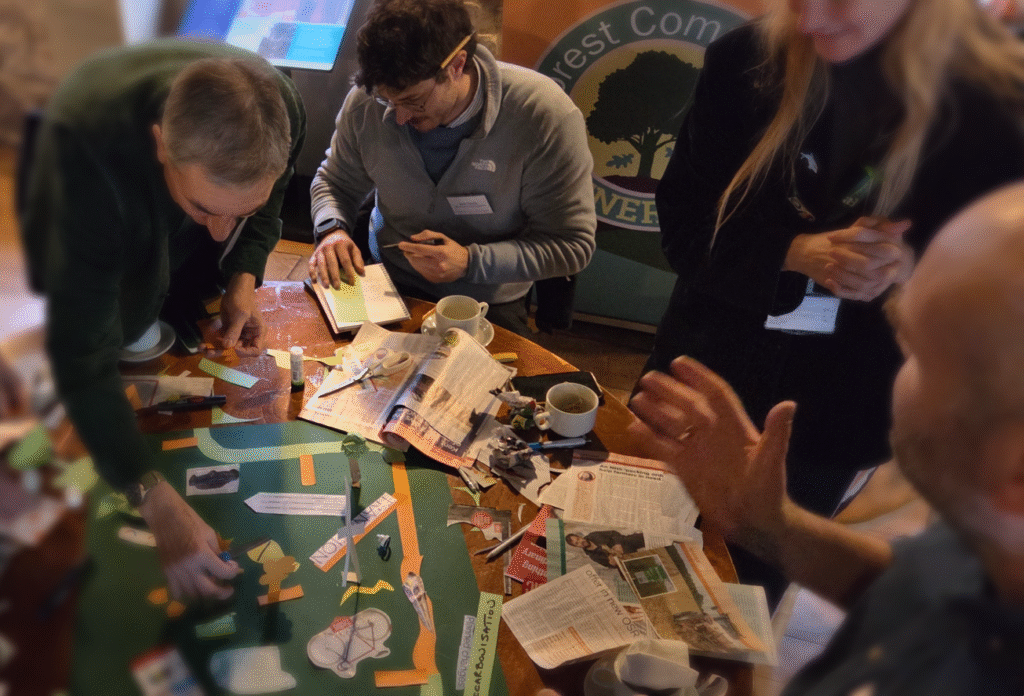The annual CCRI Winter School will take place on Thursday 12th and Friday 13th March 2026 and is inviting paper submissions on the theme of Embracing creativity in social and environmental research.
The University of Gloucestershire’s Countryside and Community Research Institute (CCRI) annual Winter School for PhD researchers based at UK institutions in 2026 is inspired by the theme of embracing creativity.
The two-day Winter School provides an opportunity for current PhD researchers to present work-in-progress to a group of peers in a conference style setting.
- Audience members will also include staff and post-graduate students from across the University of Gloucestershire’s School of Arts, Creativity and Environment.
- Experienced staff from the CCRI will be on hand to provide constructive and supportive feedback. CCRI is recognised as an internationally excellent research institute by the ESRC and is a member of the Welsh Graduate School for Social Sciences.
The Winter School is built upon a tradition of providing a friendly and encouraging space in which to share ideas (here we are in 2014!).
Embracing creativity in social and environmental research
‘Creativity requires imagination…courage…responsible unself-consciousness…, logical thinking and sensitive intuition which are executed with elegance. (Burgett, 1983, 246-249)’.
There is growing recognition of the important role of creativity in meeting interrelated environmental and societal crises. Definitions of creativity frequently suggest that it can be characterised by ideas and approaches that marry the new and the useful; that are both original whilst adaptable to needs (Lehmann et al, 2023, Gould, 2023). Increasingly, creativity is understood as essential to inspiring the transformative changes required to negotiating and mitigating current and anticipated socio-ecological challenge. A corresponding advance in research towards experimenting with and utilising novel ideas, perspectives, collaborations and methodologies is needed in support of such transformations. The most recent Royal Geographical Society’s conference focused on the theme of creativity, and we would like to extend that exploration within the 2026 Winter School. We invite contributions that align with our theme including:
- Creative collaboration: Working across disciplinary and practice boundaries to better research, understand and address complex environmental and social issues. Employing creative methodologies to ensure a diversity of voices are included within research.
- Creative visions: research, methods and approaches that help us envision and expand thinking beyond current perceptions of constraints and crises
- Creative engagement and communication: Finding ways to communicate results and findings that reach their audience effectively and can help underpin transformative change.
- Creative tensions: Navigating difficult places and debates to gain new perspectives and understandings. Creativity in service of outcomes that could be considered harmful or examples of failed benevolence.
- The conditions for creativity: What nurtures creativity and how is it supported within academia and academic research
Please send abstracts of 250 words maximum, alongside your contact details and host institution to both Alice Goodenough (agoodenough@glos.ac.uk) and Aimee Morse (amorse1@glos.ac.uk) by 12 noon on Friday 12th December. We will be in touch with a decision by Friday 19th December 2025.
We welcome abstracts from UK-based PhD students at any stage of their studies (from engagements with the literature, and theoretical and methodological deliberations, to presentations of results, outcomes and impact). The CCRI frequently focuses on rural research and exploring people and environment relationships from social science and humanities perspectives, and related contributions are invited. However, the Winter School is open to post-graduate researchers from any field and discipline who feel they will benefit from its approach. Previous participants’ backgrounds have ranged widely through the disciplines.
Attendance at the Winter School is free of charge, however, successful applicants will need to cover the cost of their travel and accommodation in Cheltenham.
References
Burgett, P. J. (1983). … On creativity. The Journal of Creative Behavior, 16(4), 239–249
Lehmann, J., Cole, R. G., & Stern, N. E. (2023). Novelty and utility: How the arts may advance question creation in contemporary research. Leonardo, 56(5), 488-495.
Gould, R. K. (2023). How creativity can help research on the multiple values of nature become more innovative and inclusive. People and Nature, 5(2), 244-257.




